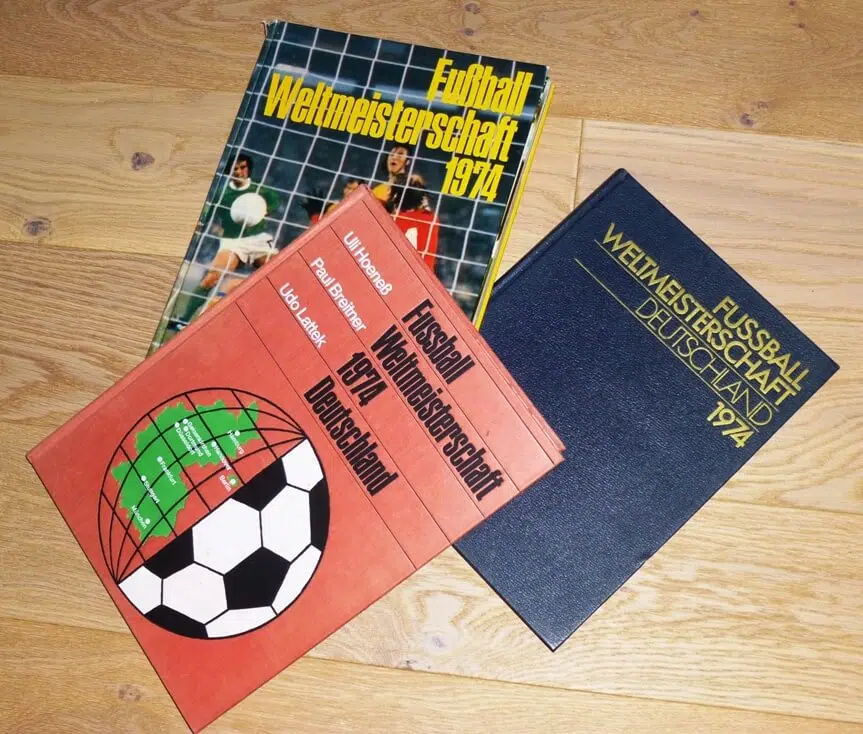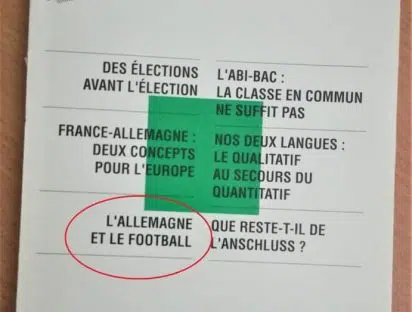
YouTube killed the World Cup Book!
When I was a young reader each World Cup was immediately followed by the publication of an avalanche of souvenir books. These albums, usually sold in prestigious hard cover editions with excellent photos from all major highlights and curiosities of the tournament, were officially signed by famous coaches or TV anchormen, sometimes even by active players, although it was plain to see that they had hardly written a line themselves. As the ghostwriters were mainly top-level sports journalists, however, the quality of the analysis was actually rather good.
When the Euro moved in 1980 from a five-day event with four teams to a real tournament with a group phase, it also became the object of such books, perhaps a little thinner, but no less lavishly illustrated. Each two years, these books were a favourite (and actually mandatory) Christmas gift from well-meaning parents or uncles.
Today the World Cup souvenir book is a virtually extinct species. Like video killed the radio star, internet gave a lethal blow to the souvenir book. Why should anyone care for all these photos if you can have all possible highlights of all possible tournaments permanently available in YouTube clips?
Nostalgia put aside, I can’t help but think this is a pity. These books are beyond doubt the ones that I spent the largest amount of hours with in my childhood and youth. Unlike novels, their plot and narrative unfolded afresh at each reading; they told a story that had happened before our eyes and whose drama was magnified by hindsight. They gave a face to exotic places like El Salvador (1970) and Haiti (1974) and they produced intriguing statistics and records.
They also indulged in massive stereotyping, especially when it came to describing the ‘national styles’ that the different teams were presumed to enact. In their enthusiasm about the different football cultures the texts sometimes come dangerously close to the essentialist discourse of the ill-famed ‘Mentalitätsgeschichte’ of the first half of the 20th century, when ‘national characters’ were ‘scientifically’ depicted as inscribed in the genes of the peoples.
At the time, of course, I didn’t see anything disturbing in the stereotyping, but simply swallowed this concrete and accessible inventory of cultural difference. Today my favourite World Cup souvenir album is one I found decades later by chance in a garage sale. It’s an East German account of the 1970 World Cup in Mexico, and you can almost feel the contorsions of the authors who visibly were in love with both the (truly excellent) West German team of Müller, Seeler, Beckenbauer, Overath and with football itself, but were forced to find ways to criticise both the class enemy from the federal republic and the capitalist regime of professional football.
I can’t possibly be the only kid of the seventies who has been marked by the images of these books. And I can’t help but think they would deserve more attention from researchers, as they possibly left a much stronger trace on the individual reader than the newspaper articles and editorials we tend to quote as evidence. Maybe I should go more often to garage sales.
Speaking of the power of books, my favourite British author Julian Barnes has recently published a very short autobiographical essay on the role books have played in his life. The sentence that struck me most was his refusal to acknowledge that books should help you escape from real life:
‘When you read a great book, you don’t escape from life, you plunge deeper into it. (…) What you are essentially doing is furthering your understanding of life’s subtleties, paradoxes, joys, pains and truths.” (1)
Replace ‘read a great book’ with ‘do research on football’ and you have the full rationale of the FREE project!
(1) Julian Barnes, A Life with Books, London: Jonathan Cape, 2012, p. 27.




